Wondering if that dusty old bottle of multivitamins you found while cleaning out the cupboard is safe to take?
The short answer is, if it has an expiration date that’s passed, then yes, it’s expired and should likely be thrown out (although they are probably not dangerous).
However, not every brand of vitamin or multivitamin has an expiration date, which can make things confusing.
In this article, we’ll explain the nuances behind vitamin expiration dates so you can get the most from your supplements.
Do Vitamins Expire? Yes, But Not Like Foods
It’s common knowledge that expired food is likely to be contaminated with mold and/or bacteria and should not be consumed.
But what about supplements? Do vitamins go bad, or is it safe to take them after their expiration date?
Here’s the deal.
The Food and Drug Administration considers vitamins as foods and regulates them as such (yes, contrary to what you may have heard, supplement companies are subject to FDA regulations and audits and must operate under cGMP (current good manufacturing) guidelines).
That also means they can expire, just like foods.
However, unlike processed and unprocessed foods, which can be dangerous after they expire, expired vitamins typically just lose potency, making them less effective than a non-expired batch.
Potency refers to the concentration or amount of the specific vitamin (100 mg, 1000 mcg, etc.), which should remain consistent throughout the product's shelf life.
That’s not to say a very old bottle of vitamins that has been opened and exposed to heat and humidity cannot harbor contaminants.
However, the concern is usually with loss of potency, especially in properly stored and sealed bottles, not safety.
Why Do Some Supplements Have Expiration Dates and Others Don’t?
The FDA does not require supplement companies to provide expiration dates on products.
Therefore, you may see the following on different supplements:
- An expiration date: This means the company employs a cGMP approach to freshness and quality and conducts stability testing to determine when a vitamin, mineral, etc. begins to lose potency
- A best-by date: This terminology is commonly used in the supplement industry and means the same thing as an expiration date. It indicates that the company has completed and documented stability testing to determine when a product begins to lose potency or has any microbial issues
- A manufactured-on-date: This means the company likely does not conduct stability testing but does provide information on the date of manufacture and may recommend a product be consumed within a specific period of time, such as 1-3 years.
- No date: In this case, the company does not employ any stability testing or transparency about when the product was made
So, are Supplement Brands That List Expiration Dates Better?
If you want to ensure potency—for example, that your multivitamin contains the amount of vitamins and minerals on the label—then you’ll want to choose brands that print expiration or best-by dates.
An expiration or best-by date on the label also indicates that the company is exceeding cGMP guidelines for supplement manufacturing, which is always a good thing!
A manufactured-on date can be just as good if the company also provides guidelines on how quickly to consume the supplement. This information may be listed on the label or their website, or you can call or message to inquire.
If a vitamin supplement has no date, you cannot know how fresh it is or the quality of the ingredients. Therefore, brands like this should typically be avoided.
Exceptions may be for herbal tinctures, which we’ll discuss in subsequent sections.
Do Some Types of Vitamins Expire Quicker Than Others?
Yes. All vitamins and minerals degrade at different rates depending on factors such as light, heat, and humidity.
Vitamins that are natural antioxidants, like vitamins C and E, may also have a longer shelf life than those without the same antioxidant prowess.
Different forms of vitamins, acetates, ascorbates, citrates, glycinates, chelates, whole food forms, etc. also degrade at varying rates.
In addition, different vitamin delivery systems also vary in their shelf-life.
For example, tablets and capsules last longer than gummies or liquids.
There are various nuances to setting expiration dates, especially on multivitamins containing many different vitamins, minerals, superfoods, and herbs.
This is why stability testing of products is essential in determining accurate expiration dates for vitamins and supplements.
Can You Take Out of Date or Expired Vitamins?
Most experts agree it is usually safe to take expired vitamins or those past their best-by dates.
However, you risk not getting the amount of nutrients listed on the label, which can be problematic if you have a specific condition.
If an expired vitamin has visible signs of mold, smells off, or tastes spoiled, it is not safe to take.
Use common sense and, ideally, opt for vitamins, multivitamins, and other supplements that have not exceeded their expiration or best-by dates.
What About Expired Herbs?
Herbal supplements are also considered foods and regulated in the same way as vitamins, minerals, and other dietary supplements.
Therefore, herbal supplements, either as stand-alone products or in combination with other nutrients, such as in a multivitamin, are not required to list expiration dates.
If an herbal product has an expiration—or more commonly—a best-by date, the company has conducted stability testing to determine this.
Like vitamins, different types and forms of herbs degrade faster than others. Alcohol-based herbal tinctures, for example, will have a longer shelf life than capsules or gummies.
Manufactured-on-dates may also be applied to herbal supplements.
How to Dispose Of Expired Vitamins & Supplements
Unlike drugs, expired vitamins can be disposed of like any other food, in the trash, garbage disposal (but take care with tablets), or (ideally) composted.
Does Country Life Provide Expiration Dates On Vitamins and Supplements?
Yes. All Country Life supplements include a “best by” date, which is the same as an expiration date.
We determine this based on testing and industry best practices to ensure freshness and optimal potency.
Looking For High-Quality Vitamins & Supplements? Shop Country Life
Since 1971, Country Life Vitamins has been formulating and manufacturing high-quality nutritional supplements including vitamins, minerals, antioxidants, multivitamins, fish oil, and specialty products.
We were the first supplement company to receive NSF gluten-free certification, manufacture in USDA-certified organic NSF-GMP-certified facilities, and are a certified B-corporation.
All this ensures you’re getting a pure, efficacious, and potent product you can rely on to support vibrant health.
Shop Country Life supplements here.
Sources mentioned in this article:
- “Dietary Supplements Guidance Documents & Regulatory Information.” US Food and Drug Administration.
- “Small Entity Compliance Guide: Current Good Manufacturing Practice in Manufacturing, Packaging, Labeling, or Holding Operations for Dietary Supplements”. US Food and Drug Administration.


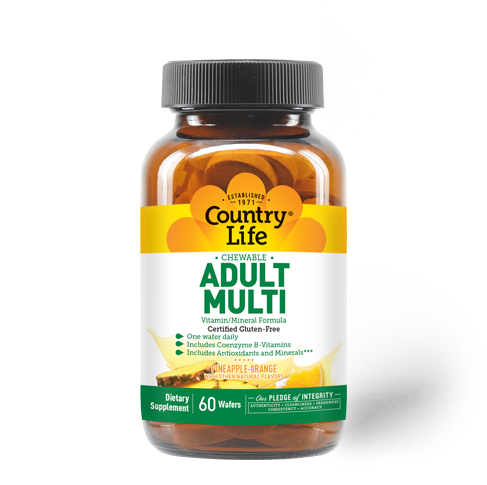
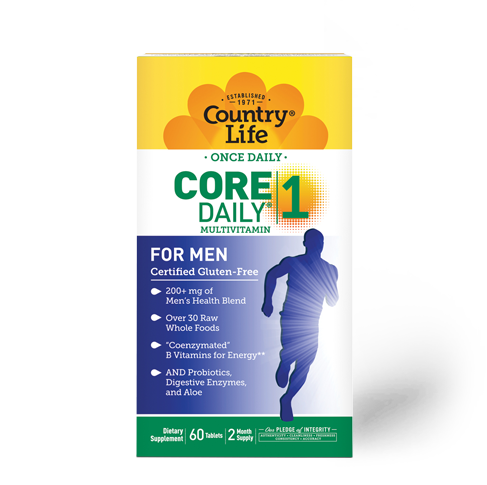
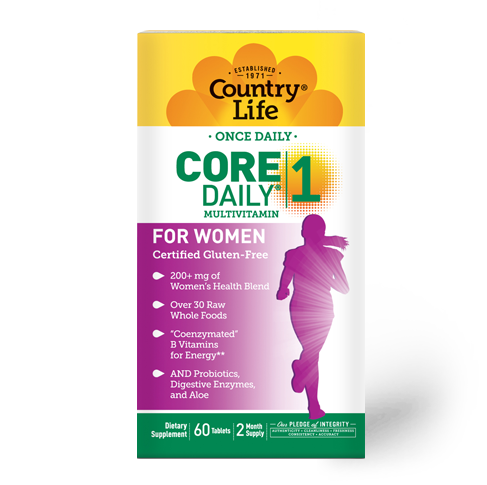
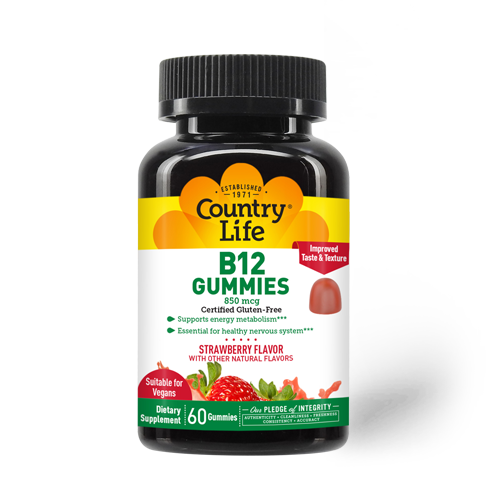
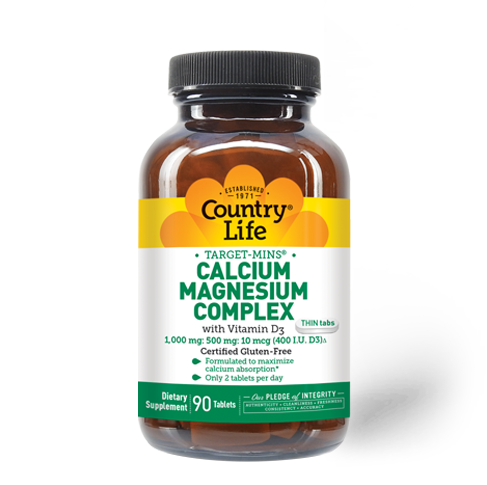










Share:
What Are The Skin And Overall Health Benefits Of Drinking Water?
What’s The Difference Between Ubiquinol And CoQ10?